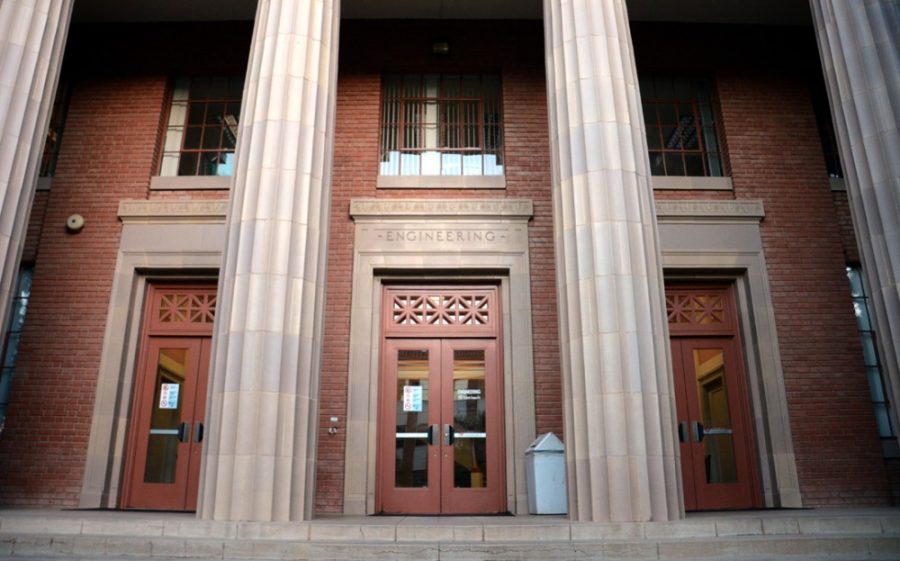As the Ebola crisis causes U.S. officials to prepare for the worst-case scenario, engineering professors are offering up examples of how engineers can help create solutions to the crisis.
Kathleen Melde, an engineering professor at the UA, said she is currently using Ebola as a lesson for her students.
“On the news lately, we hear a lot … about what is going on with Ebola in the world and in the [U.S.], and a lot of times, we are hearing good information for the medical community, which is great,” Melde said.
Melde said despite the focus on the medical community, she wants to show her students that engineers play a role on what is occurring in the Ebola crisis and similar crises.
“But as we are trying to really engage our engineering students in how engineers can help people … we are trying to use an event like Ebola as just something to shed light on how engineers can help people,” Melde said.
UA engineering professor Linda Powers said this crisis is an example of how engineers can help in these type of situations.
“I think engineers can help to build an infrastructure to mitigate the severity [of] such crises as Ebola to give those afflicted the best chance of survival and to help protect the unaffected population, to help prevent it from spreading,” Powers said.
Both professors gave examples such as bio-containment units in hospitals being built in West Africa and the proper protocol for disposing of the dead as two major issues regarding the virus.
Melde said the importance of having engineers work to design these containment units as hospitals are built in West Africa or as they make changes to hospitals in the U.S. is to make sure the disease cannot spread from room to room and to ensure the individuals taking care of the afflicted are safe.
Melde also said that in terms of the protocol continuously being brought up in relation to the disease, there are systems engineers who specialize in logistics and should be the people designing this protocol.
The National Academy of Engineering is also exploring how engineers can play a role in this crisis.
Randy Atkins, director of media and communications for the NAE, discussed a new device developed in an engineering lab of Selim Ünlü at Boston University that is supposed to decrease the cost of the tests necessary to detect Ebola.
During a radio discussion with Ünlü, Atkins mentioned the benefit of this new technology.
“Ünlü says it can test even unprocessed blood using a chip coated with Ebola virus snagging antibodies,” Atkins said. “Viruses are so tiny, they can’t usually be seen by a light microscope.”
The small device with its ability to test even unprocessed blood is simply a reflection of the points professors are trying to make to their engineering students.
The Ebola crisis may focus on the medical community, but as some professors on campus are trying to remind their students, containing the disease relies on the strengths of the engineering community as well.
_______________
Follow Ariella Noth on Twitter.









